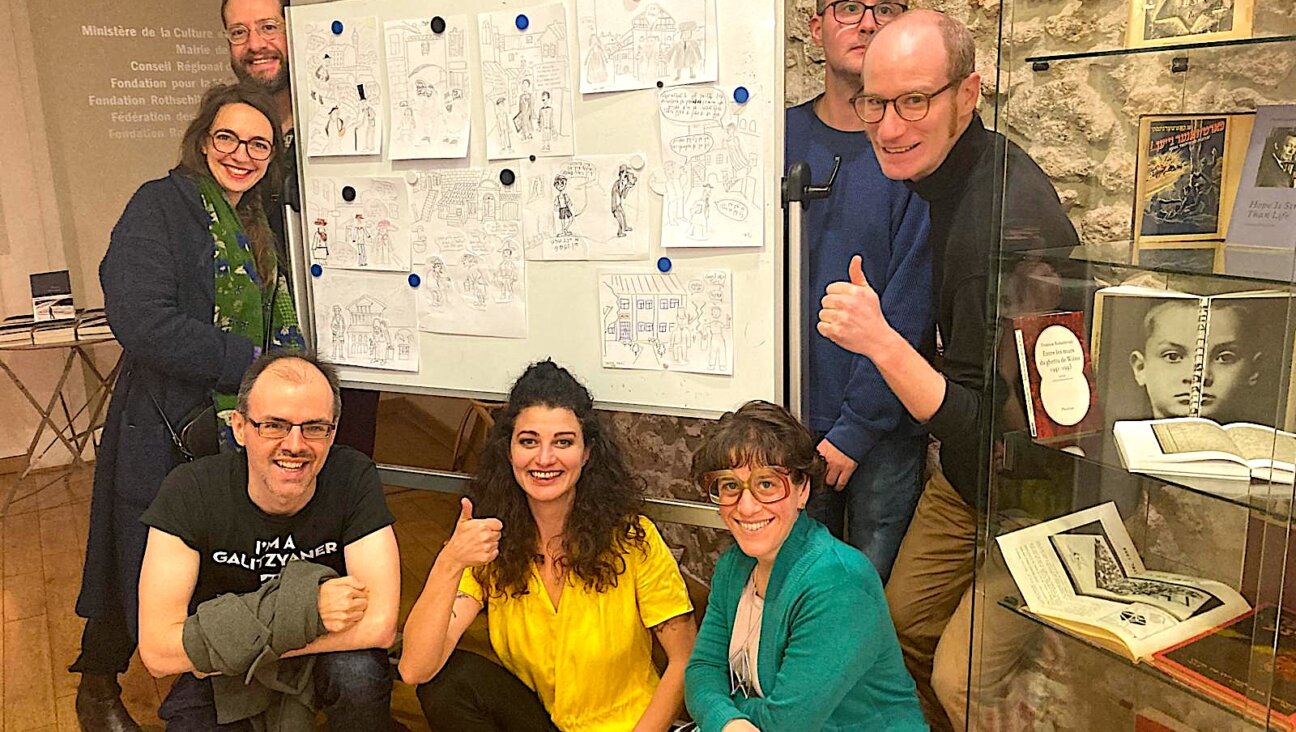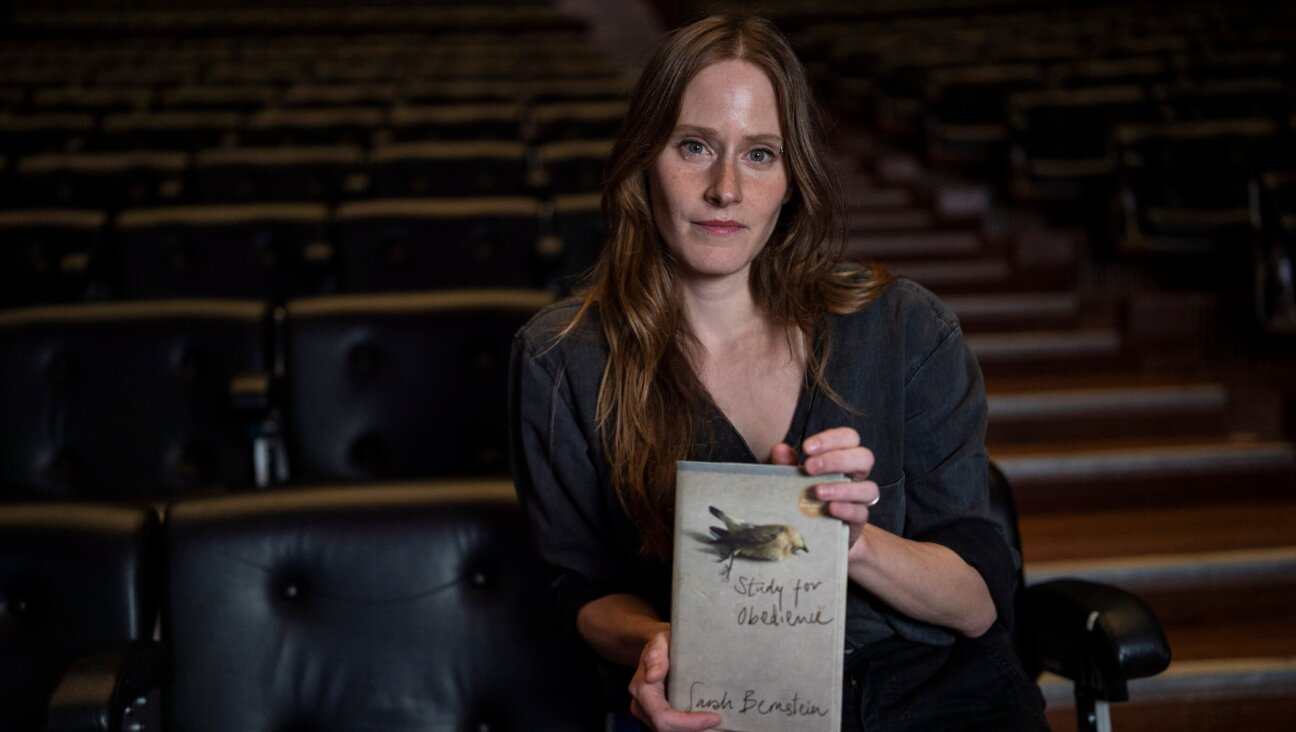In a Time of Dissent, Jewish Conservatives Close Ranks
A lone dissenter was left yelling his support for the settlers in Gaza at Sunday’s panel discussion hosted by the Jewish Policy Center, an offshoot of the Republican Jewish Coalition. The man was angry about how quickly the conservative panelists had dispensed with a question about the morality of forcing Israeli settlers out of Gaza.
One of the panelists, John Podhoretz, a conservative columnist at the New York Post and a Jewish Policy Center fellow, had said only that the Gaza pullout was unfortunate, but necessary. The other four panelists, sitting between the Israeli and American flags on the stage of Park East Synagogue in Manhattan, signaled their support for Podhoretz with silence.
The group approached most criticism of President Bush in a similar way, closing ranks behind a single answer. The solid front provided a stark contrast to the lively debate that has erupted elsewhere in recent days, including conservatives as well as liberals who criticize the president’s Iraq policy. In recent weeks the White House has been criticized by so-called paleoconservatives, including William F. Buckley, who object to the notion of sacrificing American lives and money for the sake of creating a democratic government in Baghdad.
At the same time, complaints over administration policy are emerging as well from corners of the neoconservative camp, where the creation of a democratic Iraq is seen as a vital step in the war against terrorism: The editor of The Weekly Standard, William Kristol, has criticized the administration for not sending enough troops. Richard Perle, a close confidant of several top Pentagon officials, has criticized the administration over aspects of Iraq reconstruction. Other neoconservative observers worry that Bush has allowed the State Department to set too soft a course on Iran and Syria.
But, while most of the participants in Sunday’s Jewish Policy Center panel belonged to the neoconservative camp, their remarks never offered more than a hint of Kristol’s or Perle’s criticisms. The panel’s prevailing sentiment of lock-step support for Bush appeared to be summed up by the panel’s moderator, conservative radio talk show host, Michael Medved, who said that at certain times small differences needed to be put aside for the sake of more important issues.
One of the panelists, policy center fellow and foreign policy expert Michael Ledeen offered a similar point, but in even starker terms, while hailing Bush’s anti-terrorism politicies.
Israel and the United States “are engaged in an existential war” said Ledeen, who has recently been researching Iran. “Our existence is threatened,” Ledeen added. “Most of the world doesn’t understand that” — but, all the panelists agreed, Bush does.
Joining Ledeen, Medved and Podhoretz on stage were terrorism researcher Steve Emerson and David Horowitz, the onetime radical turned conservative pundit. Horowitz, founder of the iconic 1960s magazine Ramparts, now argues that a “seamless” political line connects communists and Democrats.
The panelists’ unified, unbending support of the president appeared to stem at least in part from gratitude for Bush’s recent decision to back the disengagement plan of Israel’s Prime Minister Sharon. But Ledeen offered a broader rejoinder to the various voices of dissent against Bush that have cropped up since the deterioration of the security situation in Iraq.
“If you are victorious, people will judge the means you used to be appropriate,” Ledeen said, invoking an idea put forth by one of his scholarly subjects, Renaissance political theorist Niccolo Machiavelli. “All leaders have to choose between being feared and being loved. If you have to choose, fear is much more reliable. Fear works every time.”
The frumpy, balding, bespectacled men on stage were not, to look at them, the type to strike fear in most adversaries. On Sunday, though, few potential challengers braved the New York rain to take in the panel discussion. Indeed, virtually all of the members of the near capacity crowd sitting in the pews of the rented Orthodox synagogue seemed to be members of Bush’s political choir. They clapped loudly at each bold statement about the need for force and hissed at any mention of Bill Clinton or presumptive Democratic presidential candidate John Kerry.
Afterwards, a number of audience members expressed appreciation for the sheltered atmosphere, in the center of New York.
“It’s so nice to be among right-minded people for once,” said Mark Kigler, a salesman from the Riverdale section of the Bronx. “My whole life in New York is spent in the fishbowl of liberalism.”
The only liberal viewpoints came from Medved — while appearing to pose halfheartedly as a Kerry supporter during his questioning of the other panelists. And Emerson, the one panelist who displayed any visible uncertainty regarding the U.S. Iraq policy, did so only at a coffee klatsch afterwards, when one young man asked how he could convince his friends that the war in Iraq was the correct course.
“I’m the wrong person to ask,” Emerson answered. “I’ve got misgivings on the war in Iraq and how it was calculated.”
Emerson, however, steered clear of any direct critique of Bush. The investigative journalist was highly praised in former counter-terrorism official Richard Clarke’s book, “An End to Evil,” which alleges that the Bush administration’s obsession with Iraq hampered its efforts to deal with Al Qaeda prior to the September 11, 2001, attacks. But Emerson, who actually made the match between his own literary agent and Clarke, passed when asked by the Forward about “An End to Evil.”
“I haven’t read the book,” Emerson said. “I don’t even have time to read my emails.”
A message from our CEO & publisher Rachel Fishman Feddersen

I hope you appreciated this article. Before you go, I’d like to ask you to please support the Forward’s award-winning, nonprofit journalism during this critical time.
We’ve set a goal to raise $260,000 by December 31. That’s an ambitious goal, but one that will give us the resources we need to invest in the high quality news, opinion, analysis and cultural coverage that isn’t available anywhere else.
If you feel inspired to make an impact, now is the time to give something back. Join us as a member at your most generous level.
— Rachel Fishman Feddersen, Publisher and CEO






















